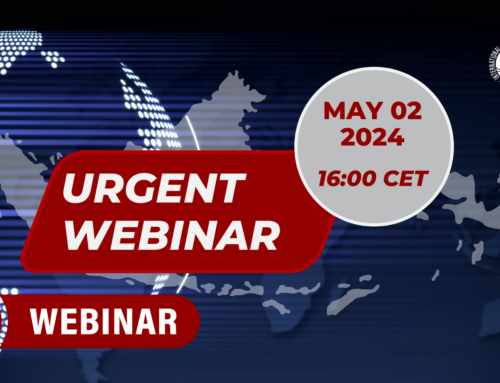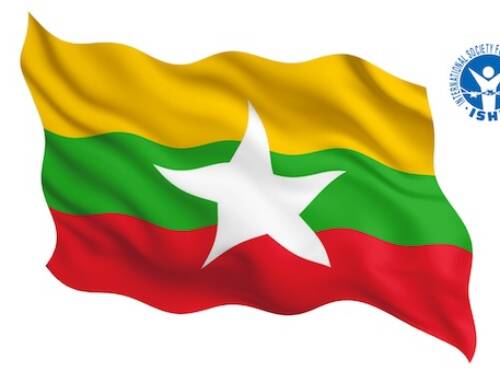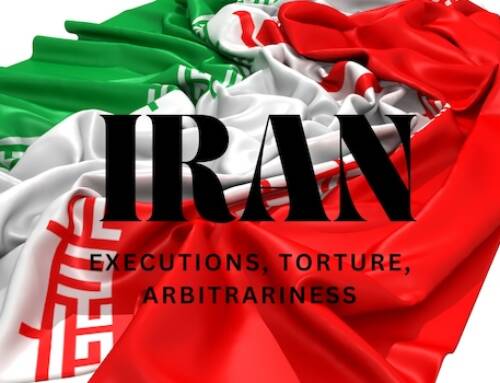Sudan


Can peace be achieved in Sudan?
Last year, the International Service for Human Rights (ISHR) reported a dire humanitarian crisis in Sudan due to the ongoing conflict. A year later, the situation seems to have worsened and we are afraid it is spiraling out of control. According to the United Nations, 8.6 million people have been displaced and 2 million have fled to neighboring countries, further exacerbating the refugee crisis in the region. The death toll has also reached unimaginable levels, with the Armed Conflict Location and Event Data Project estimating that over 15,600 people have been killed in the past year, although the United Nations believes the actual number to be even higher.
The first-year mark of the war came at a time when reports of the worst atrocities happening in Darfur and Misterei. According to the Centre for Information Resilience (CIR), 30 villages were set on fire in March, an increase from the 22 in February, and 10 in January. Most of these atrocities have been attributed to the Rapid Support Force (RSF). Equally, the UN integrated Transition Assistance Mission Sudan has noted that there is evidence of attacks on civilians by the RSF and the Arab militias in ElGeneina and its surrounding areas. One year down the road the strife seems to only have escalated—all on the watch of the international community.
It is disheartening to witness the delay in addressing the ongoing humanitarian crisis in Sudan. The genocide in Misterei raises several questions. Why are we witnessing war crimes and crimes against humanity happening under our watch? Why hasn’t the international community learned from the atrocities that took place in Rwanda and Bosnia Herzegovina while the world watched? Are the EU, the United States, the Arab League, IGAD, and the African Union willing to put an end to this war? These are not just questions that require contemplation, but they also demand action.
There is a general thinking within Africa that the war in Sudan has been forgotten mainly after the start of the conflict in Gaza where another inexcusable humanitarian catastrophe is happening. The turmoil in Sudan now must compete for global attention with other crises that appear to have more geopolitical and strategic weight to the western powers than Sudan. But for the recent international humanitarian conference for Sudan and neighboring countries, one would have concluded that Sudan is a forgotten case.
On the 15th of April, exactly a year since the war in Sudan broke out, France, Germany and the European Union convened the conference in Paris and focused on: calling on the warring parties to put an end to the hostilities, comply with international humanitarian law and guarantee full, safe and unhindered humanitarian access to the whole Sudanese territory, including through cross border operations, as well as to waive all bureaucratic impediments to the delivery of aid.
The high-level meeting that saw participants from over 58 countries and key international bodies committed 2 billion euros to support the civilian population in Sudan and those that have sought refuge in neighboring countries. However, this money if not followed by concrete resolve to bring the warrying factions to a cessation of hostilities, may not yield a sustainable solution to the civilians. It is imperative that every effort not only has regard to the plight of the civilians but also ending the war and bringing the perpetrators of these heinous crimes to book. The generals that are causing the massive civilian casualties should not get away with the internationally reprehensible crimes. Furthermore, efforts to put Sudan on the path of democratic civilian governance should be given high priority. This should underscore the paramountcy of having an accountable democratically elected civilian leadership as the long-lasting solution to the leadership impasse that plagues the Noth African Country.
The origin of weapons used in wars is a critical aspect that is often overlooked. The German Institute for Global and Area Studies has researched the support networks of military groups in Sudan, particularly the Sudan Armed Forces (SAF) and the Rapid Support Forces (RSF). While the SAF has primarily relied on Sudan’s formal state machinery, it still uses weapons that were previously supplied by China, Belarus, Russia and Iran. It remains unclear whether the arms embargo imposed on Sudan by the UN Security Council in 2004 has limited the SAF’s access to weapons. The RSF, on the other hand, seems to obtain weapons through the unregulated dark market that characterizes the arms trade. The think tank has reported that the RSF has received weapons from countries such as Libya (under the command of General Haftar), the United Arab Emirates, Chad, Niger, Central African Republic, the Russian-backed Wagner group, Eritrea, Ethiopia, South Sudan, and Uganda. These weapons have been used by the RSF militia, which has been accused of several international crimes. The involvement of regional organizations such as the Arab League, the African Union, and IGAD in supporting one side of the conflict casts doubts on their ability to be part of the solution. The support system to the conflicting groups only fuels the fighting and leaves no end in sight.
The UN, the EU, the United States, the Arab League, the African Union, and other international bodies need to be resolute in addressing the arms and financial supply chain that fuels the ongoing hostilities. Unfortunately, neighboring countries and powerful nations are benefiting from the conflict, which makes it difficult to put an end to this human tragedy. As a result, bringing peace to the region will continue to be a challenging task.
Written by
Alex Martin Musiime





